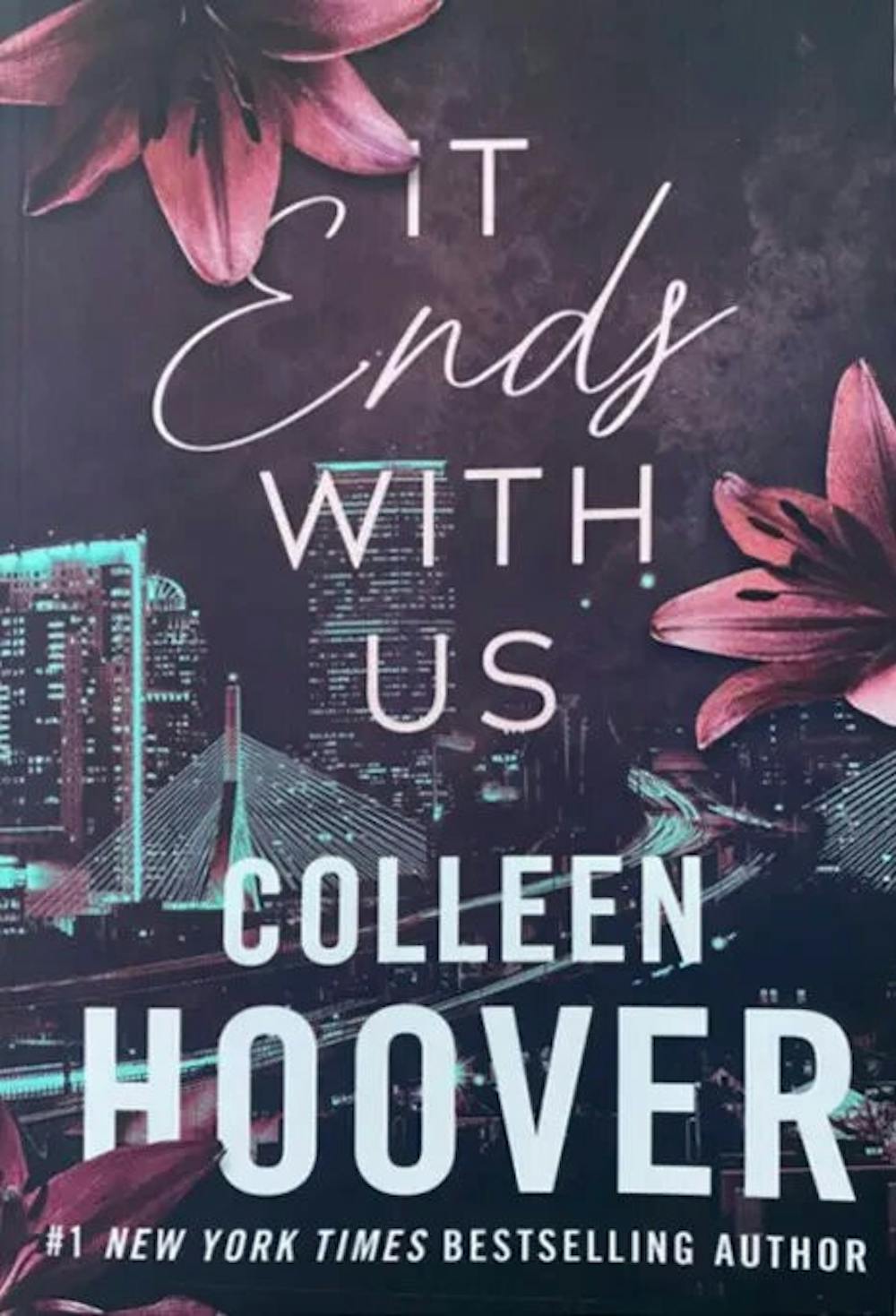Trigger warning: Sexual assault, abuse
A film adaption of Colleen Hoover’s 2016 novel, “It Ends With Us,” is being released in June, 2024. Due to the themes she flimsily depicts in her novels and the glorified ways in which she chooses to portray them, I am dismayed by the choice of bringing it to the big screen.
The book made it to #1 on the Publisher’s Weekly adult list in 2022 and sold over 1,000,000 copies. In 2023, it became the second best-selling novel of the year. Hoover is a particularly unique case because she forewent traditional marketing plans and gained her demographic when TikTok users elevated her work several years after it was published.
“It Ends With Us” follows Lily Bloom and her doomed romance with Ryle Kincaid – a relationship that revives the abusive home life she had in her childhood at the hands of her father.
In Jan. 2023, Hoover announced that “It Ends With Us” would be made into a coloring book. She immediately received backlash at the prospect of a novel containing such graphic content being presented as an activity. Many fans stated they would no longer support her or her work, and discourse surrounding the incident circulated on social media platforms.
This was the first clear indicator that Hoover is not well-intentioned in writing novels depicting domestic abuse. By attempting to launch a product originally targeted towards children and meant to provide playful relaxation while using serious themes, it reveals her frivolous perspective on the portrayals of abuse that she writes.
Hoover made a public statement to acknowledge her tone-deafness and quickly pulled the coloring book from production, however this was merely the first wave of backlash. Many readers took to YouTube to express their distaste for Hoover’s novels – raising concerns that her romance stories glamorize abusive relationships.
In “It Ends With Us” specifically, Ryle is depicted as a mysterious, imperfect character with allure as opposed to the abuser that he is. His aggression is often portrayed as passion rather than oppression, and all of these violent traits are excused by childhood trauma induced by his anger issues. In the end, Lily’s belief that Ryle will grow from his actions and change is used to justify his violence against her. We, the readers, are taught by Hoover that such a perpetrator is redeemable – enforcing the “I can fix him” ideal.
Many of her novels – such as “November 9,” “Too Late,” etc. – explore complicated, harmful relationships in ways that can be criticized similarly to “It Ends With Us” because the abuser in each relationship is written as overly arousing to the audience. The fact that her demographic is predominantly young women is concerning as this content has the potential to normalize abuse and harassment to impressionable individuals.
If the violent men in these novels are being painted as appealingly dark and simply misunderstood, instead of violent offenders, it glamorizes problematic relationships, even if the protagonist leaves them in the end.
However, readers that resonate with Hoover’s “It Ends With Us” due to their personal experiences should not be invalidated. Hoover detailed her own history with abuse in an interview on NBC’s TODAY, recounting the violence she and her mother endured from her father. She stated her mother’s strength is what inspired her to write “It Ends With Us,” making her best-selling novel based on her own true story.
While this is a powerful account she has personal ties to, Hoover does not have the license to commodify and benefit off of telling stories about abusive relationships and the experiences of survivors, painting them as glorified, tragic lovers. These tortured abuser archetypes have real-life consequences when consumed by a wide fanbase who might think these partnerships are normal and, much worse, thrilling.
Get content from The Daily Lobo delivered to your inbox
With an onslaught of mixed reviews about the book and Hoover’s past, fans and critics await the new film’s arrival and anticipate seeing how it will navigate these serious topics. The literary community is divided over her work and the intent behind her provocative romance novels, and if the movie adaptation will be a positive representation for such an emotional story or reinforce the dangerous portrayals she is known for.
Kelsa Mendoza is the copy editor at the Daily Lobo. She can be reached at copychief@dailylobo.com or on Twitter at @kelsar4in.






